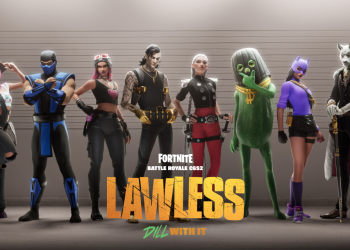Nevada has a new helper in its quest to plow by means of a backlog of unemployment claims: Google AI. Gizmodo stories that the initiative will activity one of the corporate’s cloud-based AI fashions with analyzing appeals listening to transcripts and suggesting whether or not cases ought to be authorized. Welcome to the longer term, the place a robotic weighs in on whether or not you get the federal government cash you requested.
The Nevada Unbiased wrote in June that the AI mannequin, educated on the state’s unemployment legislation and insurance policies, will analyze transcripts of digital appeals hearings. It will then spit out a ruling, which a state worker will evaluation for errors and determine whether or not to honor.
It replaces the present Nevada Division of Employment, Coaching and Rehabilitation (DETR) process, which averages three hours for a real-life human to full. Carl Stanfield, DETR’s IT administrator, informed the Nevada Unbiased that Google’s AI (which makes use of the corporate’s Vertex cloud system) can rule inside 5 minutes. “The time saving is pretty phenomenal,” Stanfield mentioned.
It’s simple to perceive why Nevada could be keen to lean on the rising tech. As just lately as June, the state reportedly had a backlog of over 10,000 unprocessed appeals, about 1,500 of which had been left over from the pandemic. And if the tech’s evaluations are correct — or the human reviewers catch its errors — it may very well be an unlimited timesaver.
Nonetheless, there may very well be psychological strain for the workers reviewing the cases to rubber-stamp the AI’s conclusions. “If a robot’s just handed you a recommendation and you just have to check a box and there’s pressure to clear out a backlog, that’s a little bit concerning,” Michele Evermore, a former deputy director for unemployment modernization coverage on the Division of Labor, informed Gizmodo.
Stanfield informed Gizmodo that a governance committee will meet weekly whereas the state is fine-tuning the mannequin and quarterly after it goes reside to monitor for hallucinations and bias. The stakes may very well be excessive for claimants because the AI-powered system may have an effect on their potential to attraction bogus choices. “In cases that involve questions of fact, the district court cannot substitute its own judgment for the judgment of the appeal referee,” Elizabeth Carmona, a senior legal professional with Nevada Authorized Companies, informed Gizmodo. In different phrases, if the human reviewing the choice misses the AI’s errors, a courtroom could not have the authorized standing to overturn it.
One Nevada politician put it a bit extra bluntly. “Are we out of our ever-loving minds?” NV state senator Skip Daly (D-Reno) mentioned to the Nevada Unbiased this summer time. “I’m just dubious of the whole concept of overreliance on algorithms and computers. I hope that we are cautious about it, and think before we just say, ‘We got to be faster or better than the next guy.’”






























